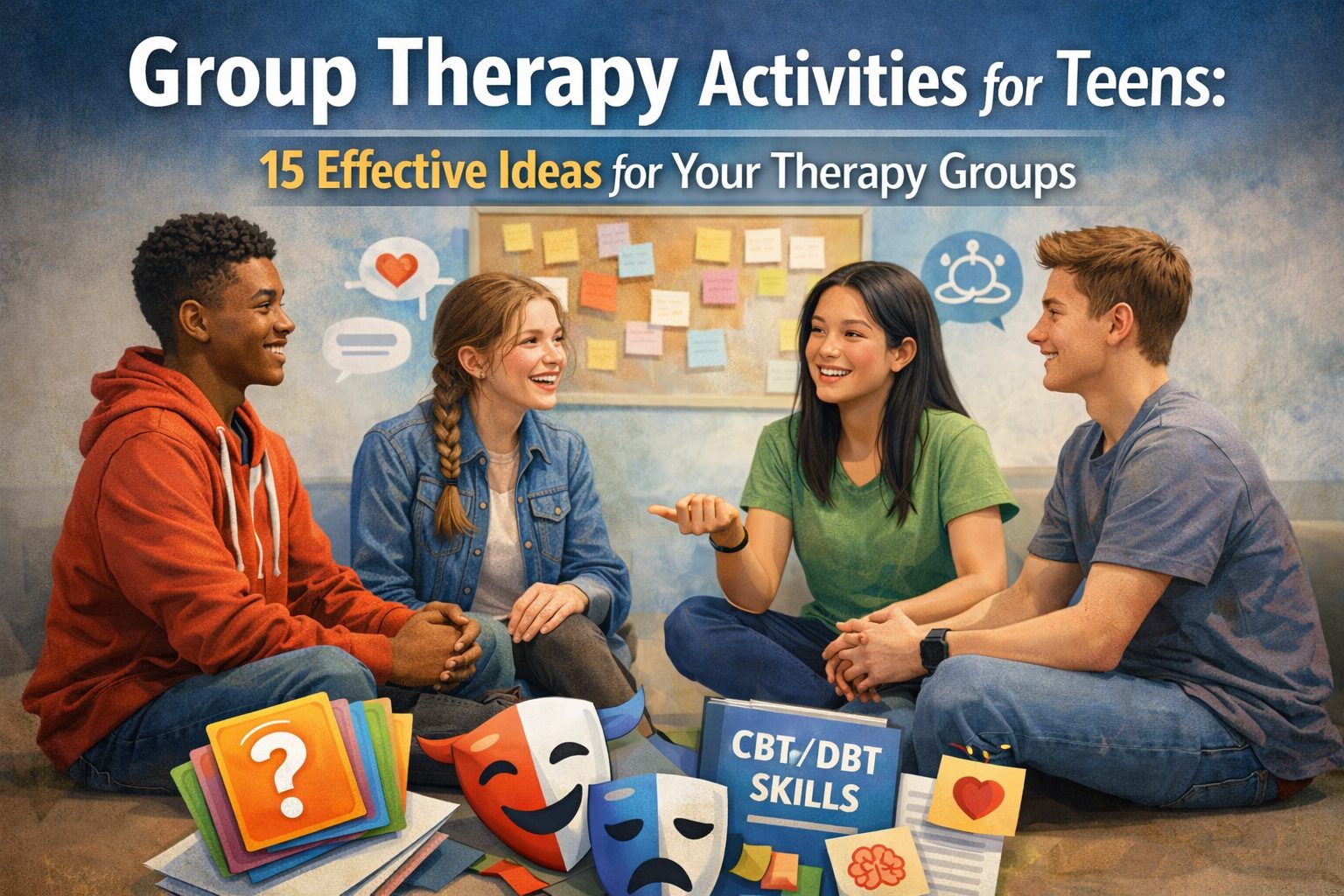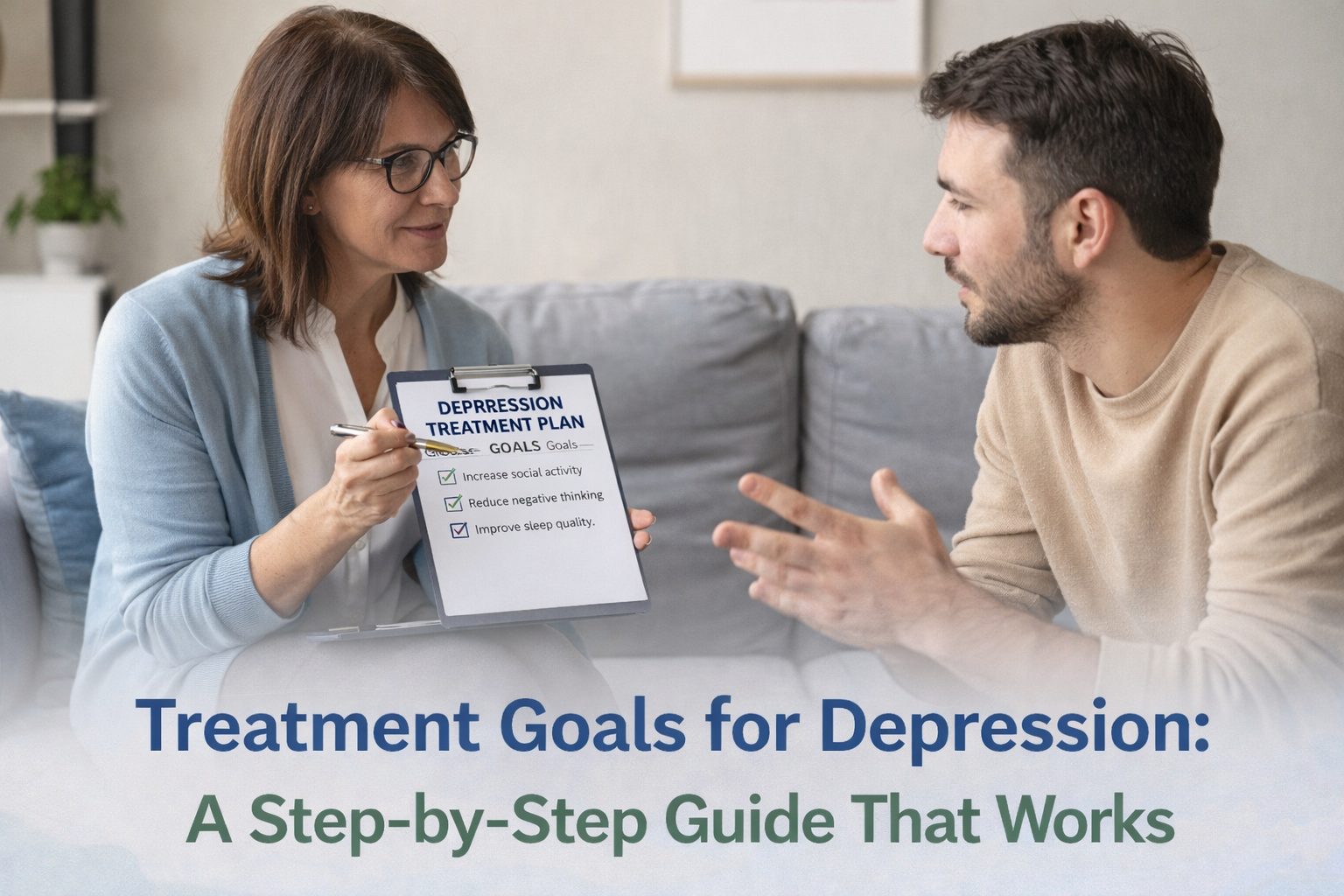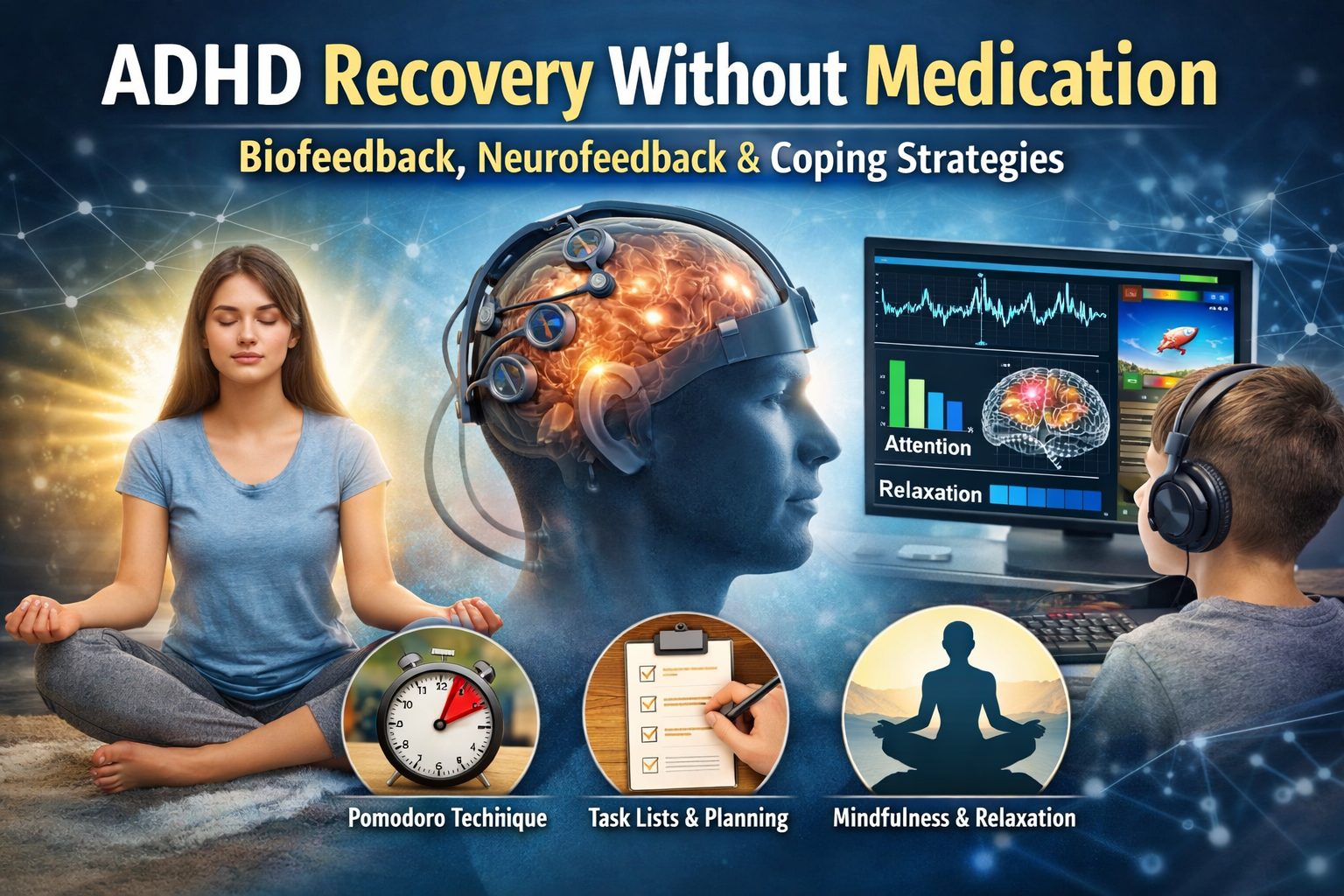Blog > Treatment Strategies > Top Evidence-Based Supplements for Mental Health: Adjunctive Nutraceutical and Lifestyle Interventions
Top Evidence-Based Supplements for Mental Health: Adjunctive Nutraceutical and Lifestyle Interventions
This evidence-based guide explores top adjunctive supplements and lifestyle interventions for enhancing mental health treatment. Written for clinicians, it reviews the latest research on omega-3s, vitamin D, B vitamins, NAC, magnesium, herbal remedies, and more—offering actionable insights to support mood and anxiety alongside traditional care.

Last Updated: June 13, 2025
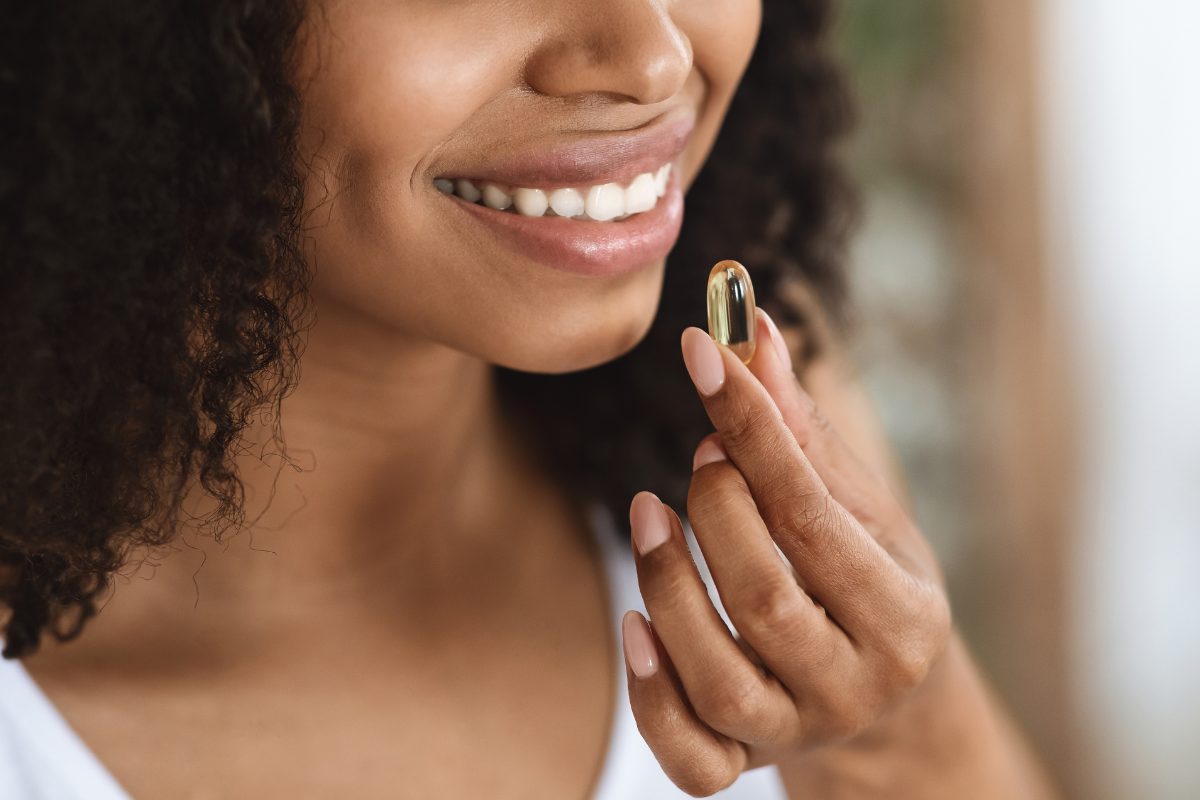
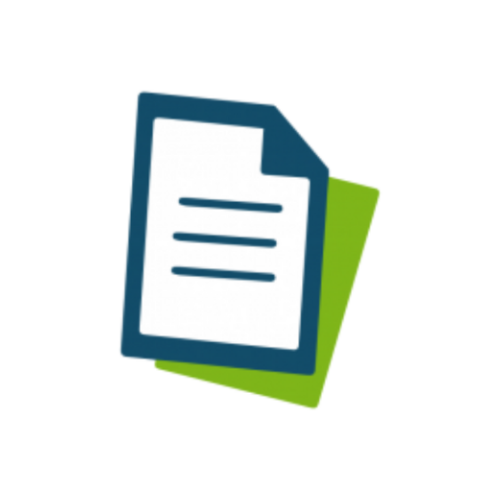
What You'll Learn
- Evidence-based supplements for mood support, reduced anxiety, and enhanced treatment response in patients with depression and related conditions
- Clinical guidance on dosing, mechanisms of action, and patient populations most likely to benefit from adjunctive nutraceuticals
- Lifestyle interventions—such as light therapy, exercise, and mindfulness—that complement pharmacological and therapeutic treatments
- Practical tips for safely integrating natural supplements for mental health into a comprehensive treatment plan, including how to monitor outcomes and personalize recommendations
Contents
- Adjunctive Nutraceuticals that Support Mood and Anxiety
- Herbal and Natural Supplements for Depression and Stress: What the Science Says
- Integrative Approaches: Combining Supplements and Lifestyle Interventions for Measurable Impact on Mental Health
- Other Natural Treatment Options Worth Knowing
- Practical Tips for Integrating Adjuncts
- Final Thoughts on Natural Mental Health Supplements
- How ICANotes Supports Clinicians Using Integrative Mental Health Approaches
When we think about behavioral health treatment, most of us picture medication, therapy, or a combination of both. And rightly so. But over the past decade, there's been an explosion of high-quality research showing that certain vitamins, supplements, and lifestyle changes can also make a meaningful difference—especially when used alongside traditional treatments. This article was written with clinicians in mind: therapists, psychiatrists, nurse practitioners, and anyone else supporting people with mood or anxiety disorders who want to understand what the science really says.
A Note Up Front: These Are Adjuncts, Not Replacements
These strategies are meant to complement treatment, not replace it. For moderate to severe depression or anxiety, therapy and/or medication remain first-line. But when patients ask, "What else can I do?" or, "Are there natural options?" — we now have solid answers backed by clinical trials.
FREE Download!
Evidence-based adjuncts for mood and anxiety at your fingertips. This downloadable Clinician Cheat Sheet gives you quick, practical dosing guidance, best-fit scenarios, and documentation tips for integrating supplements and botanicals into treatment.
✅ Support better patient outcomes
✅ Make evidence-informed recommendations
✅ Streamline documentation and follow-up
A must-have for any clinician augmenting standard care with safe, proven adjuncts.
Adjunctive Nutraceuticals that Support Mood and Anxiety
As interest grows in holistic mental health care, clinicians are increasingly asked about natural supplements for mood support and emotional well-being. Fortunately, a growing body of high-quality research has identified several nutraceuticals with clinically meaningful effects on mood, anxiety, and stress resilience. The following evidence-based options—when used alongside therapy or medication—can offer additional support for patients seeking a more comprehensive treatment approach.
Omega-3 for Depression
Omega-3 fatty acids (EPA-dominant fish oil) are well-established anti-inflammatory agents, but it’s the EPA-rich formulations that consistently show benefits for mental health. In a comprehensive 2019 meta-analysis of 26 randomized controlled trials, EPA—not DHA—was associated with significant reductions in depressive symptoms. The antidepressant effect is especially notable in individuals with partial SSRI response or evidence of systemic inflammation.
Clinically, a dose of at least 1,000 mg of EPA per day is recommended, often found in high-quality fish oil supplements. DHA, while important for neurological development, appears less effective for mood modulation in adults. Consider high-EPA omega-3s for patients with dietary insufficiencies, chronic inflammation, or those who report only partial benefit from their current antidepressants.
Vitamin D and Mental Health
Vitamin D plays a dual role in brain health: it influences both serotonin regulation and inflammatory pathways. Low levels are commonly found in patients with depression, especially during winter months or in individuals with limited sun exposure. A 2019 meta-analysis of 948 individuals with clinical depression found that vitamin D supplementation produced moderate antidepressant effects, even when administered independently of antidepressants.
Interestingly, in one trial where vitamin D was combined with fluoxetine, the treatment group saw significantly greater improvements in mood compared to SSRI alone. Clinicians should assess 25(OH)D levels and supplement accordingly. For most adults, 2,000 to 5,000 IU per day is safe and effective, particularly when levels fall below 30 ng/mL. Given its affordability, safety, and broad physiological relevance, vitamin D remains a highly recommended adjunct in mental health care.
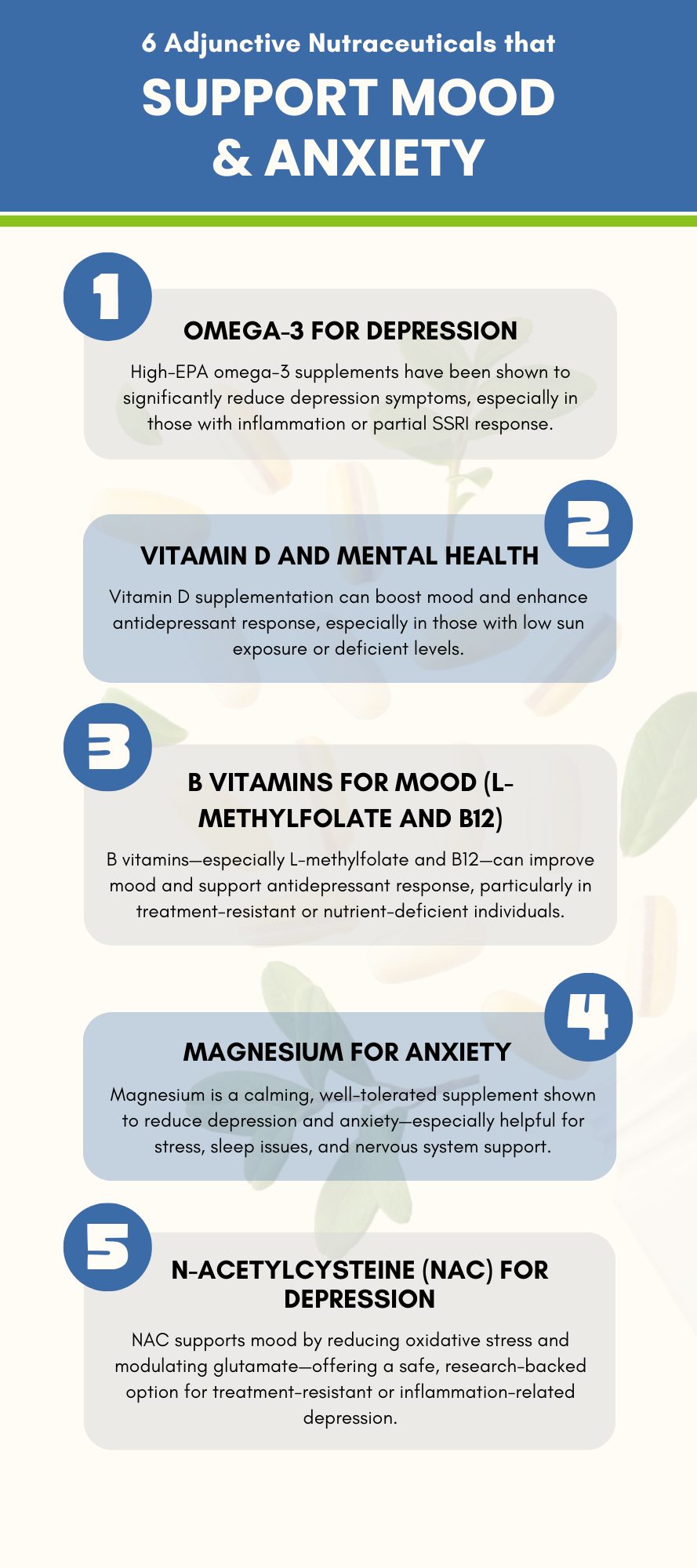
B Vitamins for Mood (L-Methylfolate and B12)
The B-vitamin complex—particularly L-methylfolate and vitamin B12—is critical in neurotransmitter synthesis and methylation processes. Deficiencies in either nutrient can result in fatigue, poor concentration, and low mood. L-methylfolate, the bioactive form of folate, has been studied as an augmentation strategy in SSRI-resistant depression. In two large trials, 15 mg/day of L-methylfolate led to significantly greater response rates than placebo. A 2022 meta-analysis confirmed these findings, showing a clear benefit for individuals with MTHFR polymorphisms or elevated inflammatory markers.
Vitamin B12 is also essential, particularly in vegetarians, older adults, or those on medications like metformin or PPIs. Even low-normal B12 levels can hinder treatment response. In clinical practice, many providers incorporate B-complex vitamins or prescribe L-methylfolate directly, especially when working with treatment-resistant cases.
Magnesium for Anxiety: Restoring Calm and Resilience
Magnesium is an essential mineral involved in over 300 enzymatic reactions, many of which directly influence the nervous system. It acts as a NMDA receptor antagonist, supports GABA activity, and regulates the HPA axis—making it a natural ally for both depression and anxiety. A 2023 meta-analysis of seven RCTs found a moderate-to-large reduction in depressive symptoms with magnesium supplementation, particularly when using well-absorbed forms like magnesium glycinate.
Clinically, doses of 248–500 mg per day are common, and when taken at night, magnesium can also support better sleep. It is well tolerated by most individuals, with the exception of those with severe renal impairment. For patients with co-occurring anxiety, sleep disturbances, or chronic stress, magnesium can be a low-risk, high-benefit addition to their treatment plan as a supplement that calms the nervous system.
N-Acetylcysteine (NAC) for Depression
NAC is a precursor to glutathione, the body’s most powerful intracellular antioxidant. In psychiatry, NAC appears to exert its effects by modulating glutamate transmission and reducing oxidative stress and inflammation. A 2024 meta-analysis of 12 RCTs found small but statistically significant benefits for depressive symptoms, particularly in patients with bipolar depression or treatment resistance.
Doses of 2,000–3,000 mg/day are commonly used, often divided into two doses. NAC is also being explored for obsessive-compulsive symptoms, substance use disorders, and trichotillomania. Side effects are rare, typically limited to mild gastrointestinal discomfort. In patients with inflammation-linked or persistent depression, NAC may offer a safe and biologically plausible pathway for support.
Herbal and Natural Supplements for Depression and Stress: What the Science Says
Ashwagandha for Stress (Withania somnifera)
Ashwagandha (Withania somnifera) is one of the most well-known adaptogens, long used in Ayurvedic medicine to support resilience to physical and emotional stress. Its mechanisms include HPA axis regulation and mild GABA mimetic effects, which help reduce cortisol and improve sleep quality. A 2021 meta-analysis of seven placebo-controlled trials showed a significant reduction in anxiety symptoms with 500–600 mg/day of standardized ashwagandha extract.
Ashwagandha is particularly helpful for patients with chronic stress, burnout, or anxiety-related insomnia. It is generally well tolerated, but because of rare reports of liver toxicity, it should be used cautiously in patients with hepatic issues. For those looking to reduce their physiological stress burden, this botanical can be a gentle and effective option.
Saffron for Mood: A Golden Ally
Saffron (Crocus sativus) may seem like an unlikely antidepressant, but clinical trials tell a different story. At a dose of just 30 mg/day, saffron has been shown to significantly improve symptoms of depression and anxiety. A 2019 review of 23 RCTs concluded that saffron’s efficacy was comparable to SSRIs in mild-to-moderate depression—with virtually no adverse effects.
Its mechanism likely involves mild serotonin reuptake inhibition and antioxidant activity. Because it is well tolerated and gentle, saffron is particularly suited for patients who are sensitive to standard medications or seeking a plant-based approach. It can be used alone as a natural mood boosting supplement or as an adjunct for added support.
Integrative Approaches: Combining Natural Supplements and Lifestyle Interventions for Measurable Impact on Mental Health
While nutraceuticals can play a powerful adjunctive role, lifestyle interventions often enhance and sustain their effects. Movement, light exposure, and mindfulness practices don’t just improve mood—they also target many of the same biological pathways as supplements, including inflammation, neuroplasticity, and stress regulation. The following integrative strategies can be combined with both conventional treatment and targeted supplementation to create a more holistic and impactful care plan.
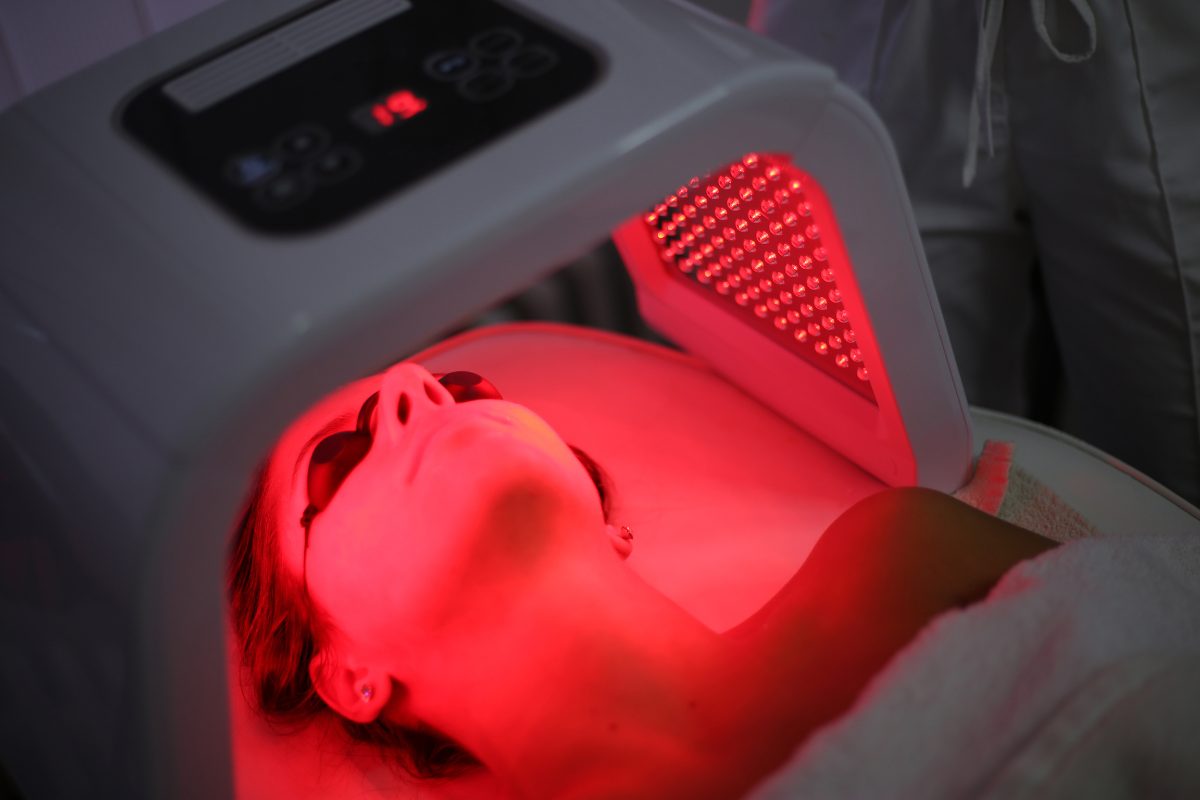
Bright Light Therapy
Light therapy regulates circadian rhythms and enhances serotonin. A 2024 meta-analysis confirmed its effectiveness in both seasonal and non-seasonal depression. The standard protocol is 10,000 lux for 30 minutes each morning. It’s a first-line treatment for seasonal affective disorder. In bipolar patients, monitor closely due to risk of mania.

Exercise
Exercise improves mood through increased BDNF, reduced inflammation, and better stress regulation. A 2023 review of 218 trials (over 14,000 participants) found that exercise was as effective as antidepressants for mild-to-moderate depression. Aim for 150 minutes per week, including walking, yoga, or resistance training. Start small and build.

Mindfulness and Meditation
Mindfulness reduces rumination and improves emotional regulation. Mindfulness-Based Cognitive Therapy (MBCT) has been shown to reduce relapse in depression. Recommend mindfulness apps or MBSR groups, especially for patients prone to anxious thoughts or depressive relapse.
Other Natural Treatment Options Worth Knowing
Beyond the core supplements and lifestyle practices already discussed, several additional natural compounds are gaining attention for their potential mental health benefits. While these options may not yet be considered first-line adjuncts, emerging research supports their thoughtful use in specific clinical contexts. The following treatments offer promising—though sometimes preliminary—evidence and may be valuable additions to a personalized, integrative mental health plan.
Zinc for Brain Health
Zinc is a trace mineral essential for brain health, playing a central role in neuroplasticity, neurotransmitter activity, and inflammation regulation—largely through its influence on brain-derived neurotrophic factor (BDNF). Several studies have associated low serum zinc levels with depressive symptoms, and a number of small randomized controlled trials have explored its use as an adjunct to antidepressants. Most trials have used doses between 25 and 30 mg of elemental zinc per day. Although findings are mixed, some trials have demonstrated symptom improvement in patients with documented zinc deficiency. A meta-analysis by Sarris and colleagues highlighted the variability in results and emphasized the need for further targeted research.
Despite the inconsistency in clinical outcomes, zinc deficiency is relatively common—especially in individuals with poor dietary intake, chronic stress, or systemic inflammation. Clinicians may consider adding 15–25 mg of elemental zinc to a broader nutraceutical plan for patients with partial treatment response, suspected dietary gaps, or inflammation-related depression. While not a first-line intervention, zinc can serve as a safe, low-cost supplement in a personalized integrative regimen.
SAMe (S-adenosylmethionine) for Depression
S-adenosylmethionine (SAMe) is a naturally occurring methyl donor involved in critical biochemical processes, including the synthesis of serotonin, dopamine, and norepinephrine. Among nutraceuticals, SAMe has one of the strongest evidence bases for the treatment of depression. Multiple double-blind, placebo-controlled trials have demonstrated its efficacy both as monotherapy and as an augmentation strategy alongside SSRIs. As a result, SAMe has been recommended as a second-line adjunct in several international treatment guidelines.
Despite its clinical promise, SAMe is not without limitations. Cost can be a barrier, as it is significantly more expensive than many other supplements. More importantly, SAMe carries a small but serious risk of inducing hypomania in individuals with bipolar spectrum disorders, especially when not yet diagnosed. For that reason, clinicians should begin with conservative doses (typically 200–400 mg/day) and closely monitor for mood elevation. In patients with sluggish methylation cycles, chronic fatigue, or partial antidepressant response, SAMe may be a powerful therapeutic addition when used judiciously.
Probiotics for Mood and Anxiety
Probiotics have become a growing area of interest in mental health, particularly due to their influence on the gut-brain axis. While not yet considered a core psychiatric intervention, emerging research supports their use as adjuncts in mood and anxiety disorders. Specific probiotic strains—especially Lactobacillus and Bifidobacterium species—have shown the ability to modulate neurotransmission, reduce systemic inflammation, and support the integrity of the gut lining. Mechanistically, probiotics may influence emotional regulation through vagus nerve stimulation, lowered cytokine activity, and improvements in gut permeability.
In 2022, the World Federation of Societies of Biological Psychiatry acknowledged probiotics as having "emerging support" for adjunctive use in depression. Though more data is needed to determine strain-specific recommendations, probiotics are generally well tolerated and can be particularly helpful for patients experiencing mood issues alongside gastrointestinal complaints, IBS, or chronic stress. Many clinicians now include probiotics as part of a broader integrative treatment strategy, especially in individuals with gut-related symptom patterns.
Chamomile and Lavender for Anxiety
Chamomile (Matricaria chamomilla) and lavender (Lavandula angustifolia) have long been used in traditional medicine, and recent clinical trials support their effectiveness for anxiety symptom relief. Chamomile has demonstrated anxiolytic properties in patients with generalized anxiety disorder, with one randomized controlled trial showing significant symptom reduction over an eight-week period. Its gentle action and excellent safety profile make it suitable for individuals seeking non-pharmacologic relief from mild to moderate anxiety.
Lavender oil, particularly the standardized oral form known as Silexan, has shown strong evidence in both subclinical anxiety and co-occurring anxiety in depression. In multiple trials, Silexan provided results comparable to low-dose benzodiazepines without the sedation, cognitive dulling, or risk of dependency. For patients with mild anxiety, sleep disturbances, or somatic symptoms, both chamomile and lavender offer effective, low-risk options to enhance emotional well-being. While not replacements for conventional treatments in more severe cases, they serve as valuable tools in holistic care.
Practical Tips for Integrating Adjuncts into Treatment
Start by screening for deficiencies in B12, folate, vitamin D, and magnesium. Introduce one intervention at a time, using evidence-based doses and educating patients about supplement quality and expectations. Remember, natural doesn’t mean risk-free.
Monitor outcomes like you would with medications. Ask about specific symptom changes. If an adjunct isn’t helping, reassess. If it’s working, support continuation.
Use adjuncts strategically: omega-3 and vitamin D for inflammation; magnesium and ashwagandha for stress; NAC for glutamate regulation. Combining lifestyle changes like exercise and light exposure can enhance outcomes further.
Final Thoughts on Natural Mental Health Supplements
As clinicians, we often wish we had more tools to help our patients feel better faster. These adjunctive strategies—grounded in science—offer just that. Whether it's a high-EPA fish oil, a walk in the sun, or a quiet mindfulness practice, these options empower patients and can boost outcomes. They're not a replacement for the work we do in session or the medications we prescribe, but they can absolutely enhance the healing process.
The research is solid. The risk is low. And the potential benefit? Absolutely worth exploring.
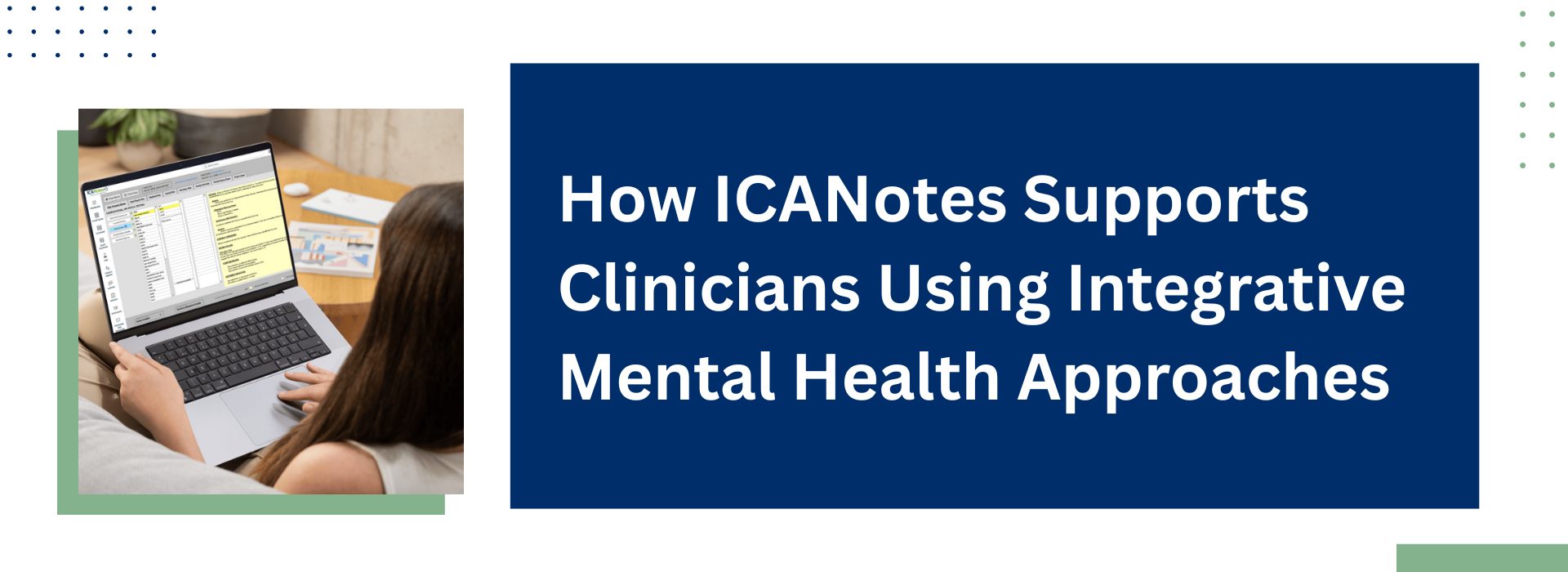
How ICANotes Supports Clinicians Using Integrative Mental Health Approaches
Integrative mental health care requires clear, comprehensive documentation to ensure treatment plans reflect the full range of interventions—conventional and complementary. ICANotes makes it easy for clinicians to capture and track adjunctive strategies like nutraceutical use, lifestyle recommendations, and patient-reported outcomes. With customizable templates for progress notes, treatment plans, and intake assessments, you can document supplement regimens, monitor symptom changes, and coordinate care with other providers—all within a behavioral health-specific EHR.
ICANotes also supports evidence-based practice by enabling structured documentation of risk factors (e.g., nutrient deficiencies, sleep disruptions, or stress load) and tracking the impact of interventions like light therapy, mindfulness, or exercise over time. Whether you're incorporating omega-3s, recommending ashwagandha, or integrating mindfulness-based strategies, ICANotes gives you the clinical tools to document holistically, stay organized, and support better outcomes—without adding to your administrative burden.
Find out more by scheduling a demo or registering for a free 30-day trial (no credit card required).
Start Your 30-Day Free Trial
Experience the most intuitive, clinically robust EHR designed for behavioral health professionals, built to streamline documentation, improve compliance, and enhance patient care.
- Complete Notes in Minutes - Purpose-built for behavioral health charting
- Always Audit-Ready – Structured documentation that meets payer requirements
- Keep Your Schedule Full – Automated reminders reduce costly no-shows
- Engage Clients Seamlessly – Secure portal for forms, messages, and payments
- HIPAA-Compliant Telehealth built into your workflow
Complete Notes in Minutes – Purpose-built for behavioral health charting
Always Audit-Ready – Structured documentation that meets payer requirements
Keep Your Schedule Full – Automated reminders reduce costly no-shows
Engage Clients Seamlessly – Secure portal for forms, messages, and payments
HIPAA-Compliant Telehealth built into your workflow
Related Posts
Dr. October Boyles is a behavioral health expert and clinical leader with extensive expertise in nursing, compliance, and healthcare operations. With a Doctor of Nursing Practice (DNP) from Aspen University and advanced degrees in nursing, she specializes in evidence-based practices, EHR optimization, and improving outcomes in behavioral health settings. Dr. Boyles is passionate about empowering clinicians with the tools and strategies needed to deliver high-quality, patient-centered care.





